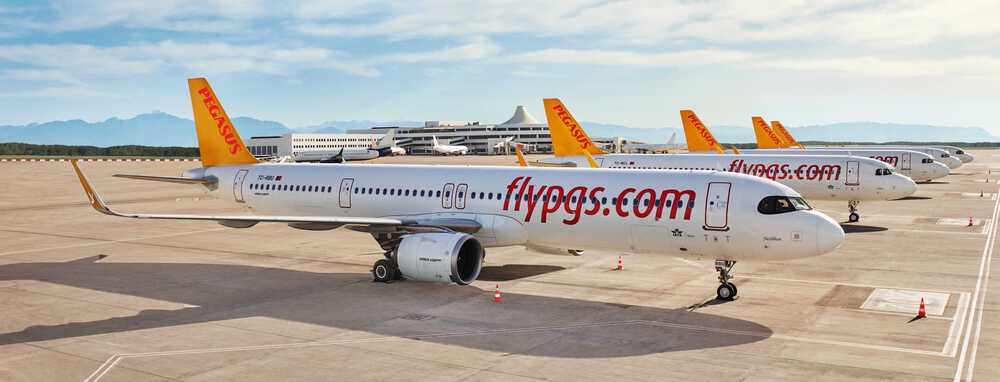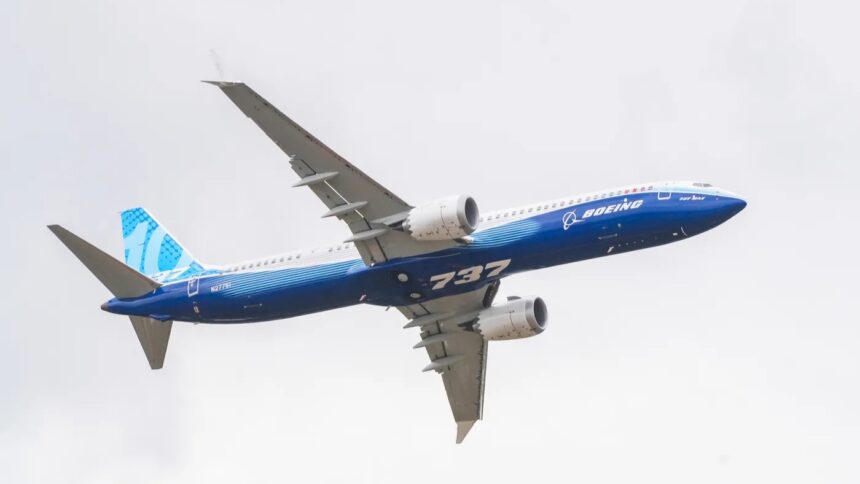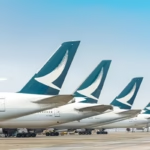Turkish low-cost carrier Pegasus Hava Tasimaciligi AS has placed its largest-ever aircraft order with Boeing Co., valued at $36 billion. This agreement, Boeing’s biggest of the year, is a significant shift for Pegasus, which had previously favored rival Airbus SE.
Details of the Deal
Pegasus has placed firm orders for 100 Boeing 737 Max 10 jets, with options for an additional 100. The deliveries are set to begin in 2028. While the total value of the deal is estimated at $36 billion, airlines usually negotiate substantial discounts for bulk orders.
This is a critical win for Boeing, which has faced recent challenges, including a prolonged labor strike and a near-catastrophic accident earlier this year. It also signals a strategic reversal for Pegasus, which had announced less than two years ago that it aimed to transition to an all-Airbus fleet.
Pegasus’s Changing Strategy
Pegasus currently operates over 100 aircraft, including 16 older Boeing 737 NG planes, with the remainder being Airbus A320 family jets. It also has outstanding orders for 53 Airbus A321 jets.
The airline’s decision to switch back to Boeing reflects its growth ambitions. In 2023, Pegasus indicated plans to expand operations to new destinations, including North Africa and the Baltic states. This new order aligns with its strategy to grow its fleet and network.
Pegasus CEO Guliz Ozturk highlighted that the deal not only strengthens the airline’s position but also opens opportunities for Turkish manufacturers and the broader aviation industry. The airline operates primarily out of Istanbul’s Sabiha Gokcen Airport, which recently added a second runway to support increased traffic.

The 737 Max 10: A Delayed but Key Player
The 737 Max 10 is the largest model in Boeing’s popular single-aisle family, designed to compete with Airbus’s A321neo. However, its certification has faced delays, and the aircraft is now expected to be certified in 2025, years later than initially planned.
Despite the setbacks, the 737 Max 10 remains an attractive option for airlines, with a backlog of 1,109 orders. Major carriers like United Airlines and Virgin Australia have shown confidence in the model, even as they adapt orders due to uncertainty around certification timelines.
Strategic Implications
This order underscores Turkey’s ambition to become a significant global aviation hub. With Istanbul’s new airport emerging as a major international airfield, airlines like Pegasus are playing a key role in boosting the country’s connectivity and tourism potential.
The deal also has broader implications, strengthening corporate and political ties between the United States and Turkey. Pegasus noted that the agreement would create opportunities for Turkish manufacturers to participate in the aviation supply chain, further enhancing the economic benefits of the deal.
A Competitive Market
While Boeing celebrates this achievement, Airbus remains a formidable player in Turkey. Last year, Turkish Airlines ordered 220 aircraft from Airbus, including 150 A321 narrow-body jets and 70 A350 widebody planes.
The Pegasus order, however, is a clear signal that Boeing is determined to reclaim its ground in the competitive aviation market. With this deal, Boeing reinforces its commitment to providing airlines with efficient, reliable aircraft to meet their growth aspirations.
As Pegasus looks to expand its network and modernize its fleet, this partnership with Boeing marks a pivotal moment for the airline and the aviation industry at large.
#Boeing #PegasusAirlines #737Max10 #AviationNews #AirTravel #AircraftOrders #TurkishAviation #IstanbulAirport #LowCostAirlines #AirlineGrowth





